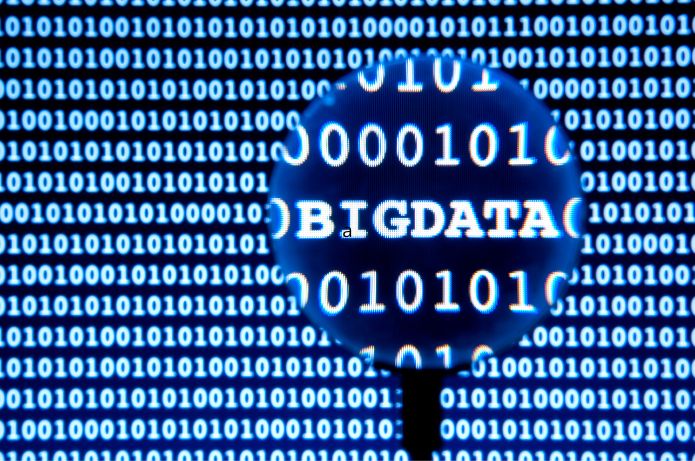Definition:
Big Data refers to extremely large and complex datasets that cannot be efficiently processed, stored, or analyzed using traditional data processing methods. This data is characterized by its volume, velocity, and variety, requiring advanced technologies and analytical methods to extract meaningful value and insights.
Main Concept:
The goal of Big Data is to transform large amounts of raw data into useful information that can be used to make more informed decisions, identify patterns and trends, and create new business opportunities.
Key Characteristics (The “5 Vs” of Big Data):
1. Volume:
– Massive amount of data generated and collected.
2. Speed:
– The speed at which data is generated and processed.
3. Variety:
– Diversity of data types and sources.
4. Truthfulness:
– Data reliability and accuracy.
5. Value:
– The ability to extract useful insights from data.
Big Data Sources:
1. Social Media:
– Posts, comments, likes, shares.
2. Internet of Things (IoT):
– Data from sensors and connected devices.
3. Commercial Transactions:
– Records of sales, purchases, and payments.
4. Scientific Data:
– Results from experiments, climate observations.
5. System Logs:
– Activity logs in IT systems.
Technologies and Tools:
1. Hadoop:
– Open-source framework for distributed processing.
2. Apache Spark:
– In-memory data processing engine.
3. NoSQL Databases:
Non-relational databases for unstructured data.
4. Machine Learning:
Algorithms for predictive analysis and pattern recognition.
5. Data Visualization:
Tools for representing data in a visual and understandable way.
Big Data Applications:
1. Market Analysis:
Understanding consumer behavior and market trends.
2. Operations Optimization:
– Improved processes and operational efficiency.
3. Fraud Detection:
– Identifying suspicious patterns in financial transactions.
4. Personalized Health:
– Analysis of genomic data and medical histories for personalized treatments.
5. Smart Cities:
– Management of traffic, energy and urban resources.
Benefits:
1. Data-Driven Decision Making:
More informed and accurate decisions.
2. Product and Service Innovation:
– Developing offerings that are more aligned with market needs.
3. Operational Efficiency:
– Process optimization and cost reduction.
4. Trend Forecasting:
Anticipating changes in the market and consumer behavior.
5. Customization:
– More personalized experiences and offers for customers.
Challenges and Considerations:
1. Privacy and Security:
– Protection of sensitive data and compliance with regulations.
2. Data Quality:
– Guarantee of accuracy and reliability of the data collected.
3. Technical Complexity:
– Need for infrastructure and specialized skills.
4. Data Integration:
– Combining data from different sources and formats.
5. Interpretation of Results:
– Expertise is needed to correctly interpret the analyses.
Best Practices:
1. Define Clear Objectives:
– Establish specific goals for Big Data initiatives.
2. Ensure Data Quality:
– Implement data cleaning and validation processes.
3. Invest in Security:
– Adopt robust security and privacy measures.
4. Fostering a Data Culture:
– To promote data literacy throughout the organization.
5. Start with Pilot Projects:
– Start with smaller projects to validate the value and gain experience.
Future Trends:
1. Edge Computing:
– Data processing closer to the source.
2. Advanced AI and Machine Learning:
More sophisticated and automated analyses.
3. Blockchain for Big Data:
Greater security and transparency in data sharing.
4. Democratization of Big Data:
More accessible tools for data analysis.
5. Ethics and Data Governance:
– Increasing focus on the ethical and responsible use of data.
Big Data has revolutionized how organizations and individuals understand and interact with the world around them. By providing deep insights and predictive capabilities, Big Data has become a critical asset in virtually every sector of the economy. As the amount of data generated continues to grow exponentially, the importance of Big Data and associated technologies is only set to increase, shaping the future of decision-making and innovation on a global scale.


